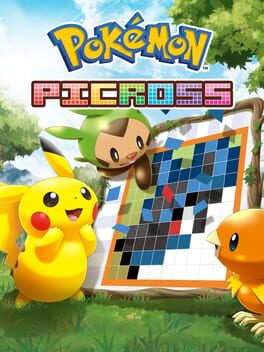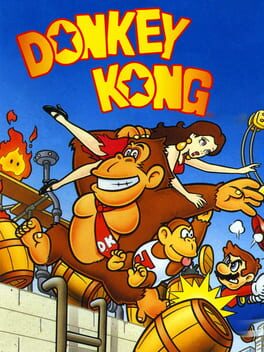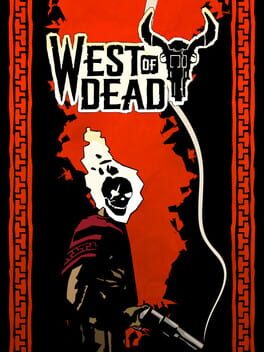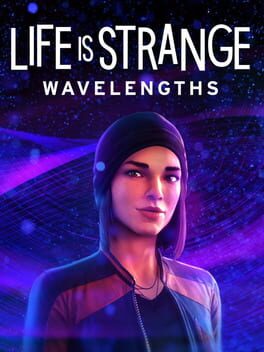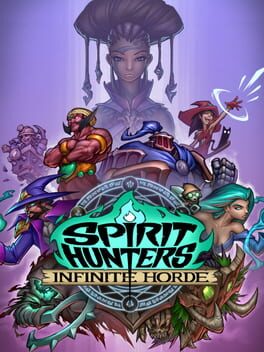bekarhops
BACKER
Bio
Nothing here!
Badges

Clearin your Calendar
Journaled games at least 15 days a month over a year

Busy Day
Journaled 5+ games in a single day

Full-Time
Journaled games once a day for a month straight

Best Friends
Become mutual friends with at least 3 others

On Schedule
Journaled games once a day for a week straight

Noticed
Gained 3+ followers

Listed
Created 10+ public lists

Roadtrip
Voted for at least 3 features on the roadmap

3 Years of Service
Being part of the Backloggd community for 3 years
Favorite Games
091
Total Games Played
048
Played in 2024
006
Games Backloggd
Recently Played See More
Recently Reviewed See More
Played with infinite continues on "Easy"; dunno if this was an original dipswitch setting on the arcade machine, or one specifically made for the emulated version in the Capcom Arcade Cabinet collection for the Xbox 360. It's an inherently frictionless experience, vacillating between boring and engaging. I'd say the latter sensation wins out, though. Even with a severely limited set of building blocks (enemies and scenarios) repeated throughout the game's 16 levels, the choices and variations made by the dev team were interesting enough to make me feel like I was playing a classic, instead of squinting through the mist of time to try to glean what the appeal was back in the day.
If you're wondering how deep your Life is Strange knowledge has to be in order to appreciate this, I'd say it'd work eminently well as a standalone. Even though Wavelengths builds on both True Colours and the previous LiS stories, as someone who's only played through TC, and about half of the first LiS, I didn't need any more context for it to become one of my favourite things I've played this year. I loved the way it folds the relative monotony and constraints of its setting and structure into the storytelling. Crucially, it's not one of those things where the developers tries to excuse their choices by mocking and lampshading them, it's more like they actively use their limitations to heighten the immersion, to put the player into the headspace of the character they're playing as.
Like I said, I'm really not familiar enough with the previous games to know exactly how Wavelengths would play to tried and true LiS-heads, but I will say that the parts of this that hit me the hardest emotionally, were the ones that seemed to draw the most on that mostly-unknown-to-me history. Which is a pretty impressive feat on Deck Nine's part.
Oh, and a quick practical note: this is a pretty meaty game for a piece of DLC, so be aware that you're heading into a 3+ hour session if you want to play through it in one sitting.
Like I said, I'm really not familiar enough with the previous games to know exactly how Wavelengths would play to tried and true LiS-heads, but I will say that the parts of this that hit me the hardest emotionally, were the ones that seemed to draw the most on that mostly-unknown-to-me history. Which is a pretty impressive feat on Deck Nine's part.
Oh, and a quick practical note: this is a pretty meaty game for a piece of DLC, so be aware that you're heading into a 3+ hour session if you want to play through it in one sitting.
Had a really great time with the progression up until the point where the game ramps up the amount of obstacles/ruins in the levels. Which is a deliberate design choice that works well in the normal run of play, but becomes a huge hassle in the boss fights at the end of each run. When these kick off, a circular fence pops up around you wherever you are at when the predetermined time limit runs out, creating an instant boss arena. The problem is that any physical obstacles within the circle don't despawn as this happens, which means your options for dodging and kiting can become extremely curtailed, depending on your position when that fence is raised around you. You could make the argument that making sure to be in an open space at the end of the run is a reasonable demand to make of the player, but given how hectic and chock full of enemies the screen tends to be at that point in the run, I don't think I can give the developers the benefit of the doubt on this one. Especially in the challenge levels that make Spirit Hunters stand out against other games in the auto-shooter survival genre (think Vampire Survivors), it feels deeply unfair to get to the end of a run, having managed to put together the required build, only to lose to the boss because there simply wasn't enough room to avoid the adds. This wouldn't be as much of a problem in a normal run, where your DPS is usually ridiculous enough by the end to kill the boss in seconds, but the challenge runs by design will limit your damage input to the point where boss fights become longer and more challenging. Losing these runs because half of the boss arena was filled with a giant monster rib feels super bad, and unintentionally so.
I'm not going to leave a thumbs down review, because I know how much that hurts discoverability on Steam – I honestly think the developers made a pretty kick-ass game – I just hope the team takes a second look at this aspect of the game, because I'd love to come back to it some day. Spirit Hunters does so many smart things to stand out in a very crowded field. It's just not enough to entice me to work around such a dubious design decision (or oversight, I really have no idea whether it's intentional or not, which makes it even more aggravating).
I'm not going to leave a thumbs down review, because I know how much that hurts discoverability on Steam – I honestly think the developers made a pretty kick-ass game – I just hope the team takes a second look at this aspect of the game, because I'd love to come back to it some day. Spirit Hunters does so many smart things to stand out in a very crowded field. It's just not enough to entice me to work around such a dubious design decision (or oversight, I really have no idea whether it's intentional or not, which makes it even more aggravating).
